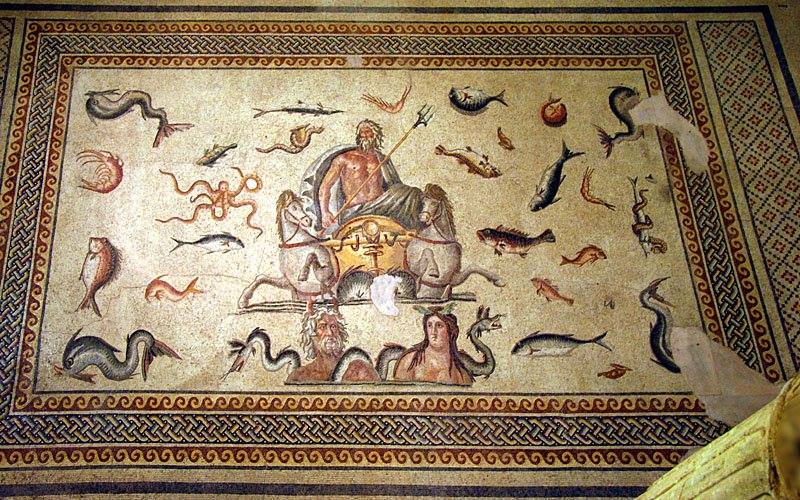It was great to find that nearly everyone at our first session has had the benefit of some exposure to Latin -- even if it was a more than a year or two ago.
 We began to see that there's no substitute for the words of the author. Fortunately thanks to the Net, we have free access to them. The Perseus site can help, as you can have the hyperlinked Latin text on one side, and an English translation (Golding or More) on the other.
We began to see that there's no substitute for the words of the author. Fortunately thanks to the Net, we have free access to them. The Perseus site can help, as you can have the hyperlinked Latin text on one side, and an English translation (Golding or More) on the other.One quick observation of Ovid's opening account of the making of the world. It begins with these lines:
Ante mare et terras et quod tegit omnia caelum
unus erat toto naturae vultus in orbe,
quem dixere chaos: (Bk. 1. 5-7)Before the Sea and Lande were made, and Heaven that all doth hide,
In all the worlde one onely face of nature did abide,
Which Chaos hight, (Golding)
And it ends with these:
Pronaque cum spectent animalia cetera terram,
85os homini sublime dedit, caelumque videre
iussit et erectos ad sidera tollere vultus. (84-86)He gave to Man a stately looke replete with majestie.
And willde him to behold the Heaven wyth countnance cast on hie,
To marke and understand what things were in the starrie skie.
What Golding misses here (and others too - check your translation) is that Ovid took care to use vultus (face) at the start and end of this large-scale tale of metamorphosis. At the beginning, the face of nature is really no face at all - there are no distinguishing features of Chaos, as he notes in some detail. At the end, as a culmination of this development of the world, we have the (presumably intelligent and intelligible) face of man looking up at the stars. (Golding might have used "countenance" for his meter.)
The universe indeed has metamorphosed in this passage from a faceless chaos to a face that turns and looks upon itself, intelligently. Small touches such as these suggest Ovid's delicate care.

No comments:
Post a Comment